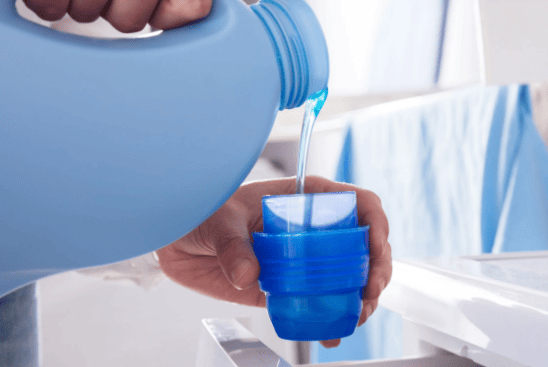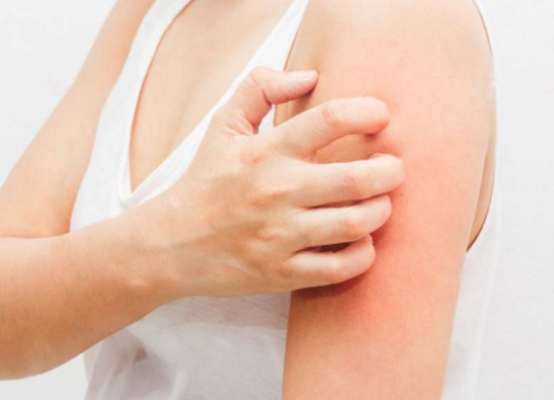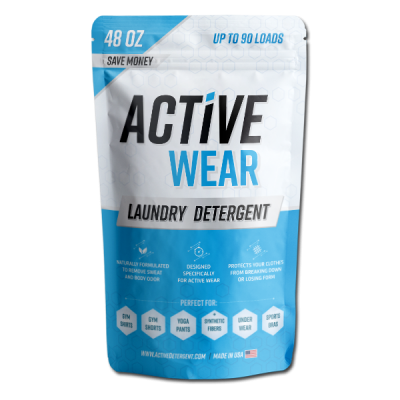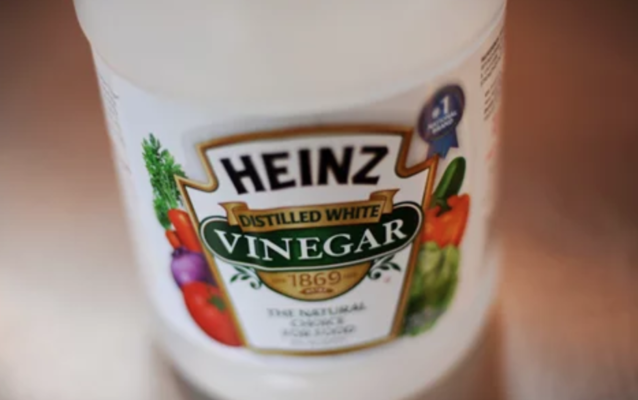Best Detergent for Kids with Sensitive Skin
-
 By
Sophia Grant
By
Sophia Grant
When it comes to washing your clothes, there’s one thing that you absolutely need—detergent. After all, the grime won’t wash itself away! Just water won’t be enough either; you need a certain something to lift and remove the oils and dirt from the fabric. What’s that something? Surfactants.
If anything, they’re the major ingredient in detergents. Without them, the products wouldn’t be effective at all. But have you ever wondered, what else are in these detergents? Because as it turns out, not all of them are made equal. That is, some are better for sensitive skin than others and that’s what we’ll be talking about in this post. Keep reading to learn more!
Common Chemicals In Laundry Detergents
Surfactants aren’t the only thing in detergents. If you look at the ingredient label, you’ll notice that most products actually contain a whole list of chemicals. For example, there are alkalies. Basically, they’re a type of sort that allows you to wash away oily particles. In addition to that, many products contain perfumes and fragrances. If anything, that’s the smell that people associate with “clean” laundry.” Finally, there are dyes that are added to make the product look “nicer.”
As you can imagine, there are cons that come with that. For one thing, many fragrances and perfumes can irritate skin. In some cases, that can even cause allergy symptoms. That’s why fragrance-free detergents are a thing.
Similarly, other chemicals can cause skin problems. If anything, this is especially common among children. Fortunately, there are things that you can do to prevent this from happening. Aside from choosing the right laundry detergent, it’s also important that you don’t add too much. Why? That’ll make it more difficult to rinse out later. In other words, there’s a higher chance that the detergent will remain on the fabric and if it comes into contact with the skin, that can lead to a reaction.

This is particularly true for close-fitting garments such as sports bras and leggings. After all, the skin is in close contact with the fabric. That’s why it’s so important to read the directions when you’re using a new detergent.
Chemicals That You Want to Stay Away From
It can be difficult to pinpoint what exactly is causing a skin reaction. With that said, there are a few chemicals that are infamous for its effects on the skin. Here are some of the most common ones.
1. Synthetic Surfactants
Surfactants are an important ingredient in laundry detergents. At the same time, however, they can also cause skin reactions. Ultimately, it all boils down to the type of surfactant that’s used in a particular product. The thing is, however, many brands do not list the specific kinds that are used in the formula. In other words, it can be quite difficult to identify and avoid the ones that are causing issues.
2. Artificial Fragrances
Fragrances and perfumes are often added to detergents to make them smell better. And while that’s true, they can also cause problems, skin irritation being one of them. The problem is that you won’t know whether or not you’re allergic to a fragrance until you’ve actually been exposed to it. The only way to prevent it is to pick something that’s fragrance-free and that’s what we recommend if you have children.
3. Dyes and Colors

Dyes are often added to detergents to increase their aesthetic appeal. In fact, that’s the only reason that they’re used. Despite that, they’re actually a common culprit for skin irritation and reactions. For instance, they can break down the skin’s oily protective layer, which can lead to irritant contact dermatitis. That’s why it’s important to choose a dye-free detergent. You’d be surprised to know just how many of them are out there! You just need to look around.
4. Methylisothiazolinone (MI)
Methylisothiazolinone (MI) is a common preservative that’s used in cleaning products such as stain removers, air freshers, and laundry detergents. What makes it bad? It’s highly corrosive. In other words, it can cause significant damage to the skin. Despite that, however, there are actually no warnings as to which products contain MI.
Fortunately, it doesn’t usually pose a problem as there’s only a small amount in detergent and it’s typically washed away during the rinse cycle. However, issues can arise if the item is not properly rinsed. That’s another reason why it’s so important to rinse your garment properly when you’re doing the laundry.
5. Diethanolamine
Diethanolamine is a colorless chemical that’s widely used in products such as cosmetics, shampoos, conditioners, and liquid detergents. Not only can it irritate the skin, but it can also cause problems with the nose and throat if inhaled.
6. Optical Brighteners
Optical brighteners are synthetic chemicals that are added to detergents to make clothing appear brighter and “cleaner.” How do they do this? By absorbing and re-emitting blue light. Due to the fact that they stick to clothing, there’s a high chance that they can result in skin irritation.
7. Parabens
Parabens are a common type of preservative that’s used in cleaning products including liquid and powder detergents, its main purpose being to extend shellfire. While they’re not known to accumulate in the body, there’s always a chance that they can cause health problems over time.
Common Skin Reactions Caused by Laundry Detergents
Generally speaking, there are two main skin reactions that are caused by detergents—allergic contact dermatitis and simple irritation. As it is, both can be quite uncomfortable for your child.
Allergic Contact Dermatitis

Allergic contact dermatitis occurs when your skin comes into contact with something that you’re sensitive too. In this case, it would be one of the chemicals in the laundry detergent. Generally speaking, there will be a red, itchy rash. In some cases, there may also be bumps, swelling, or blisters. The good news is that it will go away by itself in a few days (assuming that you’ve got rid of the allergen).
Experiencing symptoms even though you haven’t changed your laundry detergent? As it turns out, that can happen. That is, your body can become allergic to a substance that you were previously fine with. In cases like that, you’ll want to stop using the product immediately. For symptom relief, you can try anti-itch lotions or oral antihistamines.
Simple Skin Irritation
Skin irritation is more common than allergic contact dermatitis. As far as symptoms go, they will typically develop right after you’ve come into contact with the allergen (e.g. dyes, fragrances, etc). Similar to dermatitis, the area will often be red and itchy.
With that said, the symptoms will usually go away quickly as soon you get rid of the irritant (much faster than contact dermatitis). Given that, you might want to wash your garment if you believe that it’s causing your itchiness; there may very well be detergent leftover on the fabric.
Of course, it can also happen with new detergents as well. If that happens, you’ll want to switch to something else.
Choosing a Laundry Detergent for a Child With Sensitive Skin
Pay attention to the label that’s on the product. Ideally, you want to use something that’s free of dyes and fragrances (it’ll often say “dye-free” or “fragrance-free” in large letters). While it’s not as common, there are also detergents that are “paraben-free.” In other words, you won’t have to worry about those types of preservatives harming your child’s skin.
Is ACTIVE Detergent a Good Choice For Kids?

ACTIVE detergent is highly recommended for children with skin sensitivities. After all, it ticks all of the boxes. Not only is it paraben-free, but it also doesn’t contain any fragrances, dyes, and other chemicals. In fact, the entire formula is derived from plants, even the enzymes. If anything, that’s why it’s such a great option.
As with all products, however, there’s always a chance that you may be allergic to the formula. If that happens, you’ll want to stop using it right away. Fortunately, that doesn’t happen all that often.
Preventing Your Child From Reacting to Laundry Detergents
1. Add A Second Rinse Cycle
Assuming that you’re using the washer, you might want to rinse your load twice. In other words, add another rinse cycle after the first. That way, detergent won’t be as likely to cling onto your child’s clothes. If you’re hand washing, make sure to rinse the item completely with clean water so that there are no more soap suds.
2. Opt For Natural Alternatives

Instead of relying on optical brighteners and other chemicals, opt for baking soda or vinegar instead. Not only are they non-irritating, but they can also do a great job of softening and brightening your child’s clothes naturally.
3. Don’t Stuff Too Much Into the Washing Machine
It’s important that you don’t overload your machine. Sure, it might save you some time in that you can wash more at once, but it won’t nearly be as efficient. For one thing, there’s a high chance that the washer won’t be able to rinse out everything properly. That is, the detergent will remain on your fabric, which will increase the risk of skin reactions.
15% Off Amazon Coupon
×Click To Reveal The 15% Off Coupon Code For Your Entire ACTIVE Purchase At Amazon.com
Note: This promotional offer is only guaranteed through the end of the day.




